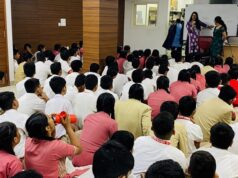Many are disappointed and have given average rating to Chidambaram’s 2005 budget. They feel that a large number of important issues have been left unanswered and those that are addressed hardly go beyond the conventional wisdom. Sensible but not sexy!
In my view the short-term disappointment is the grand strategy of long-term success: By keeping many of the critical issues out of the budget, Chidambaram has diluted potential opposition to the few good ideas he had included in the budget. He rightly flagged those policy issues and said that they will be presented later on. It is a savvy strategy of divide and rule—divide the controversial issues instead taking them all up in one go and thereby divide the opposition. On this strategy, and I hope it is a strategy, I give him 10 out of 10. It is about time that we broke this habit of thinking about policies issues once a year in February.
Two suggestions that I particularly liked in the budget are the revision of Agriculture Produce Marketing Acts to allow private players in the wholesale/mandi markets and the scholarship scheme for SC/STs, where instead of giving more money to government schools, the money would go directly to students who would have a choice of schools, just like the upper classes. Funding students is far better than funding schools. I do wish that the Finance Minister had used the phrase education vouchers instead of scholarships, just the way he introduced the idea of food stamps in the last budget. These two reforms have not received much attention so far but I think they have far greater potential for real improvement than many that have been much talked about.
Post Disclaimer
The opinions expressed in this essay are those of the authors. They do not purport to reflect the opinions or views of CCS.





